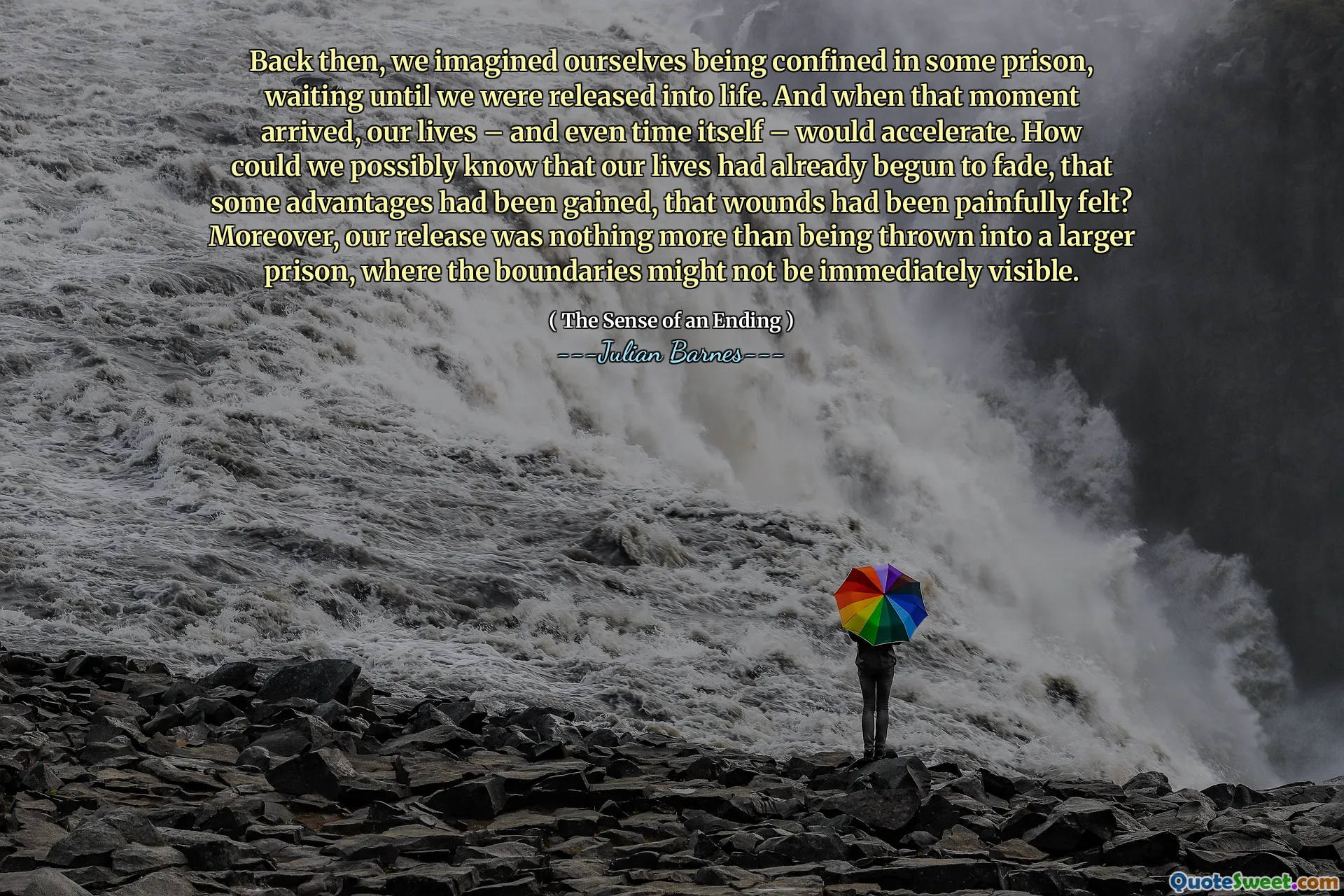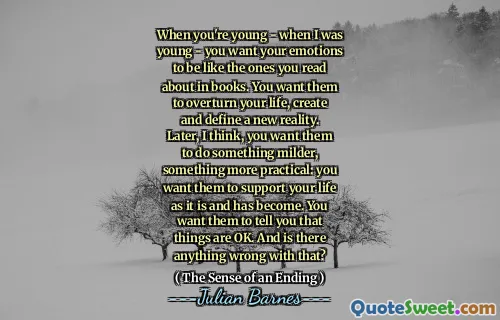
Back then, we imagined ourselves being confined in some prison, waiting until we were released into life. And when that moment arrived, our lives – and even time itself – would accelerate. How could we possibly know that our lives had already begun to fade, that some advantages had been gained, that wounds had been painfully felt? Moreover, our release was nothing more than being thrown into a larger prison, where the boundaries might not be immediately visible.
This quote delves deep into the human experience of transition, freedom, and perception of time. It suggests that during periods of confinement—whether literal or metaphorical—we cling to the hope of liberation, imagining that once we are free, life will suddenly surge forward in a rush of new experiences and opportunities. However, the reflection points out a sobering reality: that the sense of freedom may be illusory, as we might already be quietly losing our vitality, strength, and sense of purpose even before the official 'release.' The notion that life, and time itself, accelerates upon liberation resonates with many who have felt that moments of transition are oddly paradoxical—where relief and loss coexist, and the boundaries between confinement and freedom are blurred. The metaphor of being thrown into a larger prison upon liberation offers a poignant commentary on societal and personal limitations, highlighting how external constraints are often replaced with internal or systemic ones that are less obvious but equally restrictive. This realization can evoke a sense of existential helplessness or reflection on whether true freedom exists, or if we're merely moving from one cage to another. Ultimately, the quote urges us to consider the subtle, often unnoticed ways that life’s constraints shape us, and to question whether our perceptions of growth and progress are genuinely authentic or simply illusions crafted by our minds.






